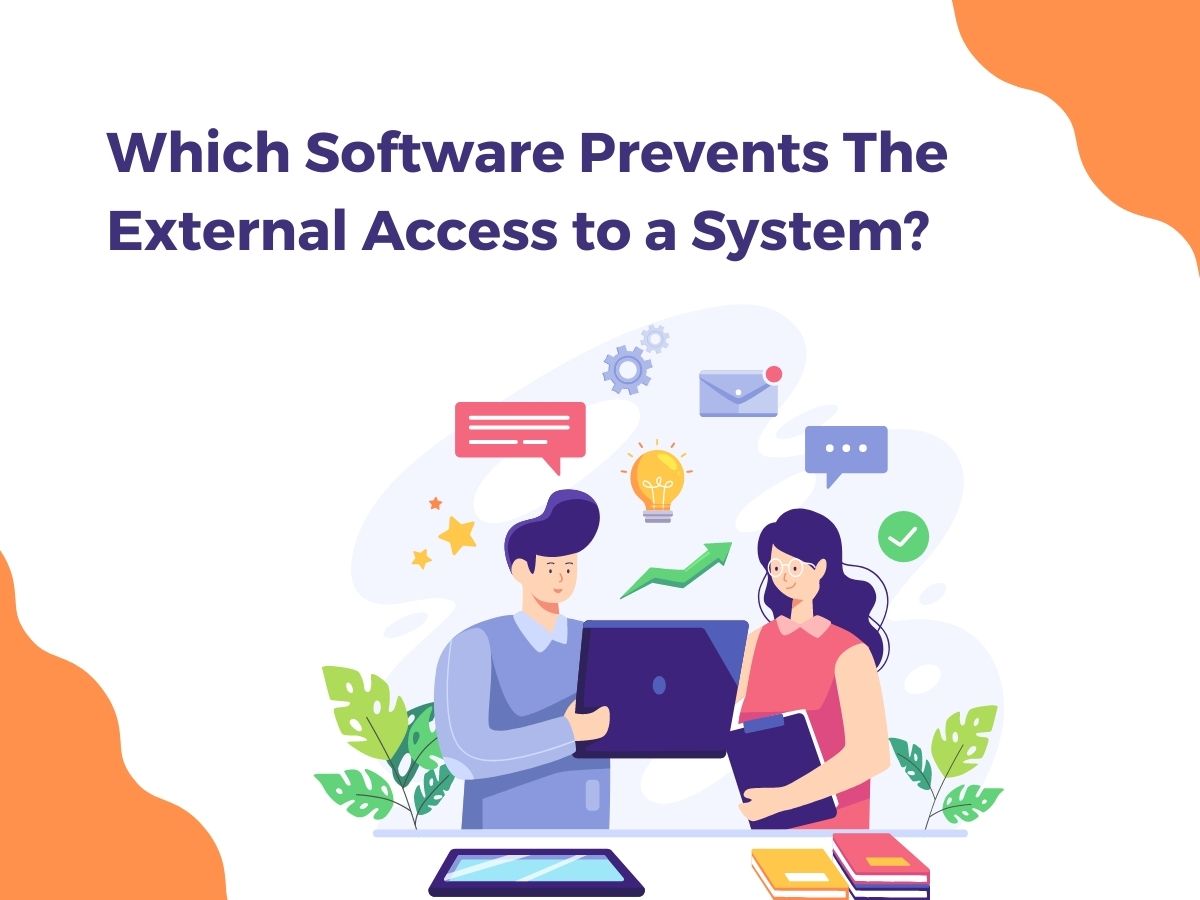Which Software Prevents External Access To A System?

A firewall prevents external access to a system. A shield or barrier preventing unwanted access to a private network, a firewall safeguards devices connected to the internet or another network, like a local area network (LAN).
Installing a computer, smartphone, or tablet firewall protects users from data-based malware risks on the internet and other linked networks.
Data moves in cyberspace between your computer and servers and routers. A firewall monitors this data, which is transferred in packets, to identify and stop any undesirable traffic.
The firewall accomplishes this by comparing the data packets to the predetermined rules. If the data packets comply with these standards, the firewalls will accept them. The firewall will refuse or block them if they do not comply with the regulations.
Today, firewalls help secure PCs and other networked devices worldwide, regardless of whether they belong to individual users, major organizations, or the government.
How does a firewall work?
Firewalls work by monitoring information traffic to accept or permit "good data" and reject or block "bad or dangerous data." However, if we get into the specifics, the firewall uses one of the three approaches or a mix to manage the network traffic flow.
A Firewall employs three approaches to safeguard a computer, tablet, or another device:
- Packet Filtering
- Proxy Service
- Stateful Inspection
Packet filtering is the most fundamental type of firewall defense that utilizes a predefined set of rules to generate filters. If the firewall's filters identify a data packet, it will be prevented from entering the network. Except for the data packets that pass the filters, every other packet is deleted.
A program that acts as an intermediate between systems, a firewall proxy, gets data from the internet, and then transmits it to the asking system. Firewall Proxy Servers operate at the firewall's application layer.
This is where both endpoints of a connection must utilize a proxy to perform the session. The proxy servers on the firewall generate and execute a process that resembles a service that would run on the end host. Therefore, all data flow for a given activity is centralized and scanned by the firewall.
A firewall's third and final way of protecting a device or system is a stateful inspection. Stateful inspection, the most sophisticated form of firewall scanning, maintains a database of the connection attributes for the duration of each session.
These qualities, collectively referred to as the states of the connection, contain essential information such as the port and IP addresses of the connection and the order in which data packets are being sent. The database is compared to the firewall's data transfer for pertinent information.
The firewall permits the data to pass if the comparison gives a positive match. If not, the data or information package is refused access.
Which types of firewall software are available?
Appliance Firewalls and Client-based Firewalls are the two virtual firewalls kinds. A client-based software firewall is installed on a device to monitor the information traffic on that device.
The appliance firewall, on the other hand, is a physical or hardware-based variant of the firewall that consists of a device installed between a user's network and an external network, such as the internet.
Appliance firewalls are frequently utilized in network scenarios where multiple devices share the same network or Internet connection.
In contrast, client-based or software firewalls are ideal for configuring firewall rights for a single user or a group of users and modifying the level of protection.
How can firewalls prevent hacker intrusions?
Firewalls limit hackers' access to your computer via Wi-Fi and the internet, protecting it from intrusion.
Hackers employ keylogging software and Trojan viruses to monitor your sessions, record keystrokes to access your computer, and steal sensitive data such as browsing history, bank account information, and passwords. By keystrokes, we refer to what you type into your PC or another device.
Without your knowledge, hackers can use your computer for illegal purposes. The good news is that firewalls can aid in preventing such attacks.
How do firewalls defend your computer against hackers? By preventing all illegal access to the system.
Additionally, a firewall permits you to pick which programs on your computer can access the internet.
This guarantees that you never accidentally connect to the internet. This prevents hackers and other cybercriminals from accessing your computer through Wi-Fi networks or internet connections.
If you want to get internet connection in your home or office then you must visit Finndit.Com once because Finndit gives you information about best internet service providers according to your location.
View Also -
How To Activate BSNL Internet?
Which Pillar Is Known As The Internet Of Transducers?
What Is The Full Form Of The Internet?
Which Device Is Required For The Internet Connection?
